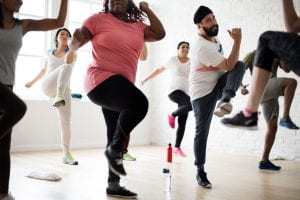 More than 42,000 people died in traffic accidents in 2021, the most in 16 years, according to data released this month by the National Highway Traffic Safety Administration (NHTSA).
More than 42,000 people died in traffic accidents in 2021, the most in 16 years, according to data released this month by the National Highway Traffic Safety Administration (NHTSA).
One of the contributing factors to this rise in deaths was an increase in impaired or distracted driving, which contributed to at least 3,500 traffic-related deaths. This number is likely underreported because distracted driving is difficult to identify during crash investigations. [Read more…]





 You have heard by now that teens in the U.S. are struggling with mental health more than ever before.
You have heard by now that teens in the U.S. are struggling with mental health more than ever before. 

 In much of North America, it officially feels like fall. Temperatures and leaves are dropping, and the fall rituals of football games, Halloween, and pumpkin spice-flavored everything are in full swing.
In much of North America, it officially feels like fall. Temperatures and leaves are dropping, and the fall rituals of football games, Halloween, and pumpkin spice-flavored everything are in full swing.
 Vitamin D is one of the most commonly taken supplements in the U.S., consumed by an estimated one-third of people age 60 and older. For decades, doctors have touted the vitamin’s ability to help the body absorb and retain calcium and phosphorus, which help bone growth, reduce cancer cell growth, and control infections.
Vitamin D is one of the most commonly taken supplements in the U.S., consumed by an estimated one-third of people age 60 and older. For decades, doctors have touted the vitamin’s ability to help the body absorb and retain calcium and phosphorus, which help bone growth, reduce cancer cell growth, and control infections. 

